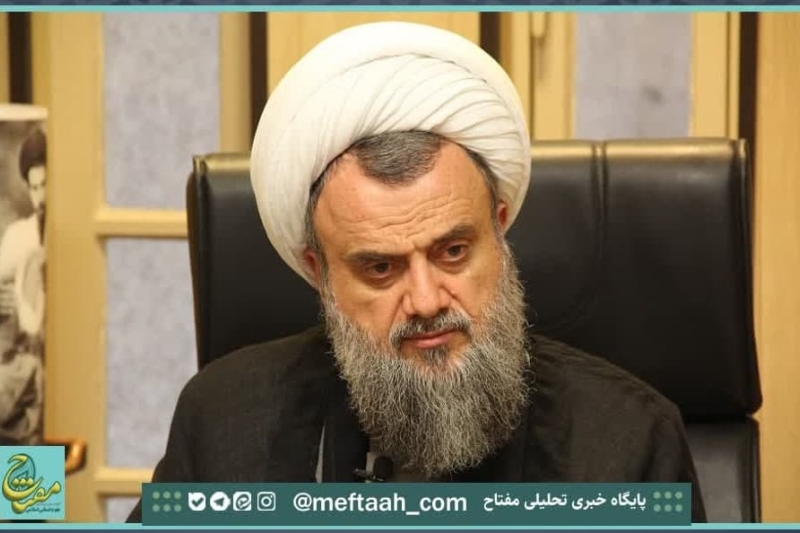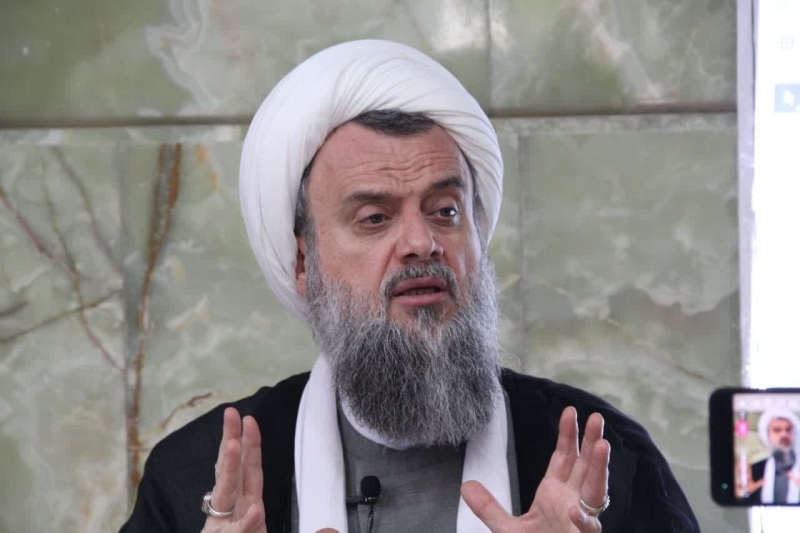Views
Archive
صبوری و حضور مردم رمز پیروزی انقلاب است
آیتالله مهدی هادوی تهرانی؛ استاد درس خارج حوزه علمیه، ۱۲ بهمنماه در ابتدای درس خارج فقه خود در مدرسه آیتالله العظمی گلپایگانی در قم با اشاره به ۱۲ بهمنماه به ارائه توضیحاتی در این باره پرداخت و گفت: ۱۲ بهمن ماه کشور در التهاب عجیبی فرو رفته بود زیرا قرار بود امام(ره) از فرانسه به ایران تشریف بیاورند و شایعه شده بود که ممکن است اجازه ندهند که هواپیمای ایشان بر زمین بنشیند و یا ممکن بود آن را ساقط کنند. وی افزود: در آن موقع هنوز حکومت پهلوی وجود داشت و بختیار به صورت موقت اختیار امور را در دست داشت ولی مردم التهاب بسیار عجیبی داشتند و شب دوازدهم بهمن ۵۷ شاید همه ایران بیدار بود و جوانان زیادی شب تا صبح مقدمات آمدن امام به کشور را فراهم میکردند. استاد درس خارج حوزه علمیه اضافه کرد: امام قصد داشتند از فرودگاه به بهشت زهرا بروند لذا این مسیر پر از جمعیت شده بود و مردم در و دیوار و درخت و ... را پر کرده بودند؛ این التهاب خیلی عجیب و غریب بود. قبل از سخنان امام(ره) و قبل از اینکه امام به بهشت زهرا برسند شهید مطهری سخنرانی کرد و او هم با اینکه فردی آرام بود در این جا گرفتار این التهاب شده بود. امام با آرامش عجیب خود تشریف آوردند و سخنرانی کردند و لحظهای که شروع به صحبت کرد آرامش حاکم شد. آیتالله هادوی تهرانی تصریح کرد: روز ۲۱ بهمن ماه بنده از دانشگاه صنعتی بیرون آمده و به سمت پل چوبی و میدان امام حسین(ع) حر کت کردم و دیدیم صدای تیراندازی میآید و برای عصر اعلام حکومت نظامی کردند اما امام(ره) فرمودند کسی به حکومت نظامی اعتنا نکند و مردم بیرون بیایند. استاد حوزه علمیه بیان کرد: ما به منزل آیتالله مهدوی کنی رفتیم تا برای این مسئله کسب تکلیف کنیم که ایشان به مدرسه رفاه نزد امام رفته بودند و نبودند؛ خلاصه اینکه تصور ما این بود که تازه درگیری در کشور شروع شده است و سالیان سال درگیر این مسئله خواهیم بود و وقتی فردای آن روز نشانههای پیروزی شروع و قطعی شد برای خود ما هم باورنکردنی بود. وی افزود: با پیروزی انقلاب واقعا کسی نمیدانست چه باید انجام داد؛ الان بعد از گذشت حدود چند دهه کشور در ابعاد مختلف قابل مقایسه با اول انقلاب نیست از جمله در حوزه امنیتی و نظامی؛ البته بحرانها و چالشها همیشه بوده و هست و صبوری مردم در طول این چند دهه عامل اصلی موفقیت بوده است. هادوی تهرانی بیان کرد: مردم هرگاه اصل نظام در معرض خطر بوده است، به میدان آمدهاند که آخرین نمونه آن همین جنگ ۱۲ روزه بود. دشمنان تصور میکردند مردم به خیابان خواهند آمد و علیه نظام شعار خواهند داد، اما مردم به خیابان آمدند و از نظام حمایت کردند. استاد حوزه افزود: «در حوادث اخیر هم این مسئله بروز و ظهور پیدا کرده و در حوادث آینده نیز همینطور خواهد بود. امیدواریم مشکلات کشور به تدریج حل شود و مسئولان نیز نهایت تلاش خود را برای رفع آنها به کار گرفتهاند. وی در پایان تأکید کرد: مردم بزرگواری کرده و میکنند و با همه مشکلات کنار آمدهاند و نتیجه آن، انشاءالله، پیروزی انقلاب خواهد بود. همچنین، انشاءالله، حضور گستردهتر مردم در ۲۲ بهمن امسال را بیش از پیش شاهد خواهیم بود و مردم نشان خواهند داد که با وجود اعتراض و نقد، از نظام حمایت کرده و دست از آن برنخواهند داشت.
News
Archive
مؤمن واقعی کافران را اولیاء خود قرار نمیدهد
به گزارش خبرگزاری بین المللی قرآن - ایکنا آیتالله هادوی تهرانی در ادامه سلسله مباحث تفسیر قرآن کریم و در ادامه تفسیر سوره مبارکه آل عمران بیان کرد: قرآن کریم در آیات متعدد بر این نکته تأکید دارد که انسان مؤمن حق ندارد کافر را ولی خود قرار دهد و از سبک زندگی او تقلید و پیروی کند مگر در مواردی که مجبور به تقیه خوفی شود. آدرس https://iqna.ir/fa/news/4328053
تبریک حلول ماه مبارک رمضان
باسمه تعالی طبق اعلام دفتر آیت الله هادوی تهرانی پنج شنبه ۳۰ بهمن ۱۴۰۴ ، اولین روز ماه مبارک رمضان است.
نیمه شعبان مبارک
به نام خدا سالروز ولادت امام عصر حضرت حجت ابن الحسن العسکری (عج) بر تمامی شیعیان و دوستداران آن حضرت مبارک باد دفتر آیت الله هادوی تهرانی 1404-11-15
تسلیت ارتحال زینب کبری سلام الله علیها
بسم الله الرحمن الرحیم رحلت جانسوز بزرگ بانوی اسلام، حضرت زینب کبری «سلام الله علیها» بر ساحت مقدس حضرت ولیعصر «عجل الله تعالی فرجه الشریف» و محبان خاندان عصمت و طهارت تسلیت باد. دفتر آیت الله هادوی تهرانی 15 رجب 1447 مصادف با 15 دی ماه 1404
ولادت امیر المؤمنین علیه السلام مبارک
بسم الله الرحمن الرحیم ولادت سراسر نور امیر مؤمنان علی علیه السلام را به همه عاشقان و شیعیان آن حضرت تهنیت میگوییم. دفتر آیت الله هادوی تهرانی ۱۲ رجب ۱۴۴۷ برابر ۱۲ دی ماه ۱۴۰۴
تبریک و تهنیت ولادت امام محمد تقی علیه السلام
بسم الله الرحمن الرحیم سالروز ولادت نهمین اختر امامت و ولایت امام ابو جعفر محمد التقی الجواد بر تمامی مشتاقان و دوستداران اهل بیت عصمت و طهارت علیهم السلام مبارک باد. نهم رجب 1447 مصادف با 09-10-1404 دفتر آیت الله هادوی تهرانی
تسلیت شهادت امام هادی علیه السلام
هو الفاطر برگزاری مراسم شهادت امام هادی علیه السلام در مراسمی که به مناسبت شهادت امام هادی علیه السلام برگزار می گردد، مقدم شریفتان را گرامی می داریم. دفتر حضرت آیت الله هادوی تهرانی دامت برکاته ــــــــــــــــــــــــــــــــــــــــــــــــــــــــــــــــــــ روز: چهارشنبه ( 3 دیماه 1404) ( ۳ رجب 1447) زمان: از ساعت 10:50 صبح سخنران: حجت الاسلام والمسلمین دکتر محمدحسین خلیلی مداح: جناب آقای گرایی مکان: صفاییه، کوچه 33، پلاک 631، حسینیه مصباح الهدی دفتر حضرت آیت الله هادوی تهرانی (مد ظله العالی) سالن خاص بانوان مهیا است.









